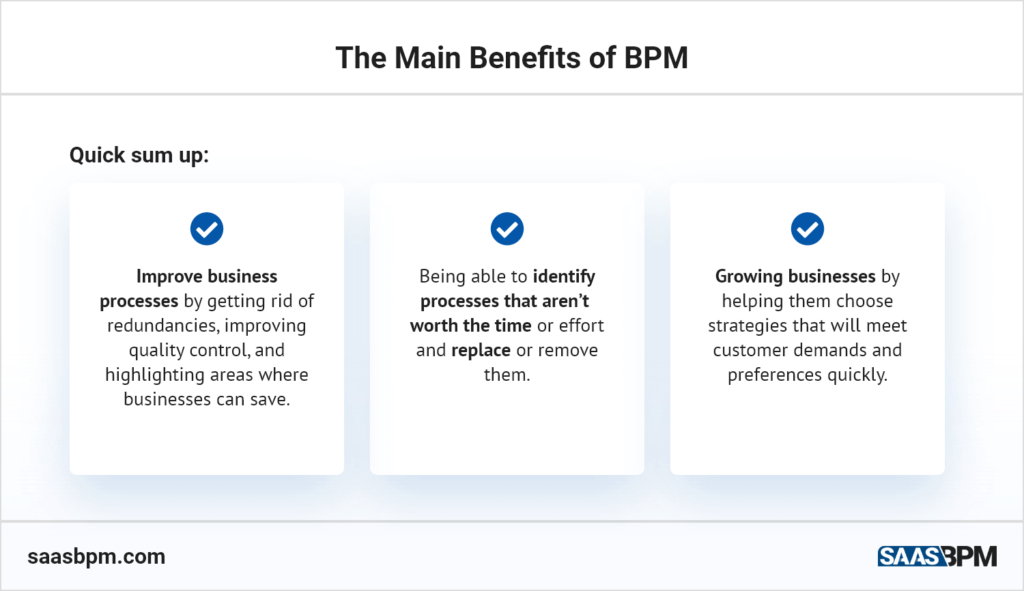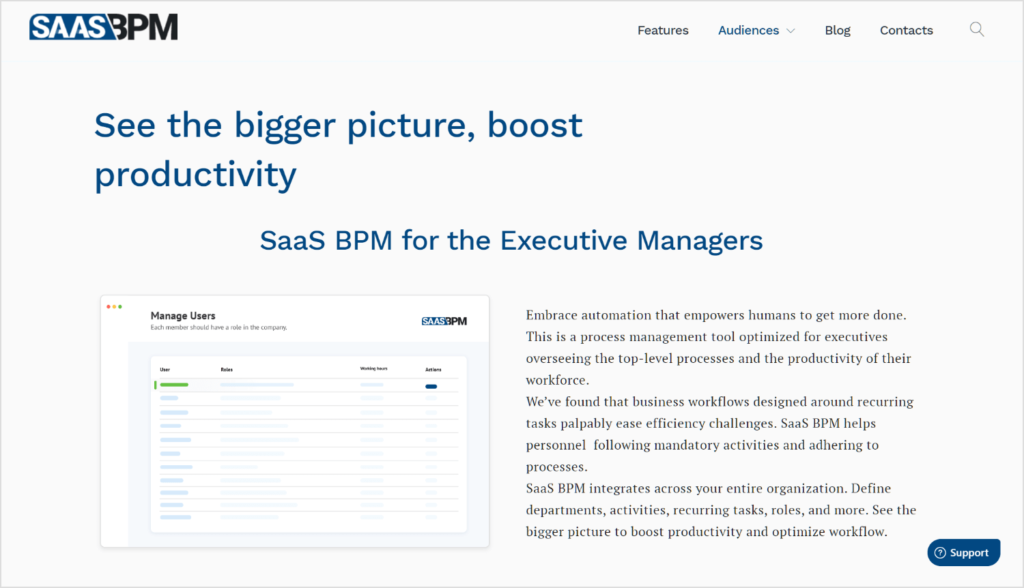In every field, businesses are facing strong competition in markets where customers are zeroed in on perfection. In order to develop your business and grow it to become one of the greats, you’ll need to maintain a high standard of quality and operative processes. For this reason, more companies around the globe are embracing BPM’s – Business Process Management software.
BPM’s are management systems aimed at bettering company performance by optimizing business processes and management. This is a long-term strategy used by the world’s top companies to improve how they do business and drive up profits as a result.
This is why a BPM is essential for business development and why you should invest in one today:
What A BPM Does
No matter the industry, every business has a set of operational processes that are at the core of their business model. The idea is to look for parts of the processes that can be optimized.
So what is business process management? Your business process management analyzes the different steps you take to achieve your company goals. BPMs also cover the analysis of different business processes and their impact on each other. There is no singular way to do these processes, and there are many ways to track how your business is performing. As this tracking is an ongoing task, it’s much simpler to rely on a BPM tool.
The idea behind BPM’s is to get insights into those processes that make your business tick and identify how they can be improved. For the business, this brings the added benefits of achieving improved organization, efficiency, and effectiveness. These factors, in turn, bring about more business agility and increased customer satisfaction and retention.
Benefits Of BPMs

Studies conducted by RedHat found that more than half of their participants stated that their main motivation between adopting BPM is cost-reduction. This is because BPM’s improve business processes by getting rid of redundancies, improving quality control, and highlighting areas where businesses can save. For example, if part of your business process is to review and approve documents, a BPM can highlight ways to make this process less time-consuming.
Another benefit is being able to identify processes that aren’t worth the time or effort and replace or remove them. If you’re working with an internal marketing and sales team, for example, you want to ensure that their efforts are aimed at targets that have the highest likelihood of converting to a sale.
The most successful businesses are responsive and in touch with customer needs, which are ever-changing. This is another area where business process management tools can help businesses grow – by helping them choose strategies that will meet customer demands and preferences quickly. The reality is that many customers today expect businesses to be in top form and have a system like this in place. Without proper optimization, you may find your potential customers looking for different options and turning to competitors instead.
How Business Is Changing

The nature of business is constantly changing, and if you are working on an outdated business model the chances are good you are missing out on valuable opportunities to improve. The biggest factor in business today is technology; it has rapidly changed buying habits, socioeconomic conditions, and other factors that will affect how you approach customers. Having something in hand that will help you meet these demands is immeasurably valuable.
If you are not actively trying to make changes to your business to keep up with the times, you’ll find yourself being surpassed by your competitors and losing key business opportunities. Particularly in times of tough economic circumstances as experienced this year, it’s more important than ever for businesses to differentiate themselves and make their mark.
This is where the importance of BPM’s come in. These systems help you to improve your existing processes and make new ones that drive your business further. Finding the best BPM solution is key to not only identify processes that need to be improved but also to reach the set company goals.
To choose a BPM, you’ll need to consider several factors. After setting goals, you’ll need to analyze current processes and then forecast future requirements that may take place and affect these processes.
Other Important Considerations

Beyond improving cost-reduction and efficiency, BPM’s have the benefit of increasing productivity. When business processes are created that are repetitive or inefficient, they take up the time that can be spent on better things like research and development. By taking the steps to address redundancies, you free up your team to pursue other important tasks that drive development.
If your business processes are reliable and optimized, you are able to put more of your resources into growing the company. When company productivity is improved and innovation is taking place, you can count on customers taking notice. When customers have trust in what you are doing, it becomes easier to retain leads and garner new ones on a consistent basis, which will ultimately boost your ROI.
In this article, we’ve highlighted the top benefits that introducing BPM into your business can bring. While it’s true that introducing a BPM into your business is a long-term commitment, it’s one that can have a significant payoff.
In short, this system is the one that gives you measurable results when you are scaling your business and helps you achieve the collective goals you’ve set for it. With this type of implementation, streamlining and optimization are the names of the game.
Until recently, the way these processes were handled was by mapping steps taken in workflow diagrams and charts, which is time-consuming and complicated. Today, there are many BPM tools that can help businesses improve their processes in an easy way. An initial investment into BPM software could save you more in the future than you would expect. Contact us to start this new journey.

